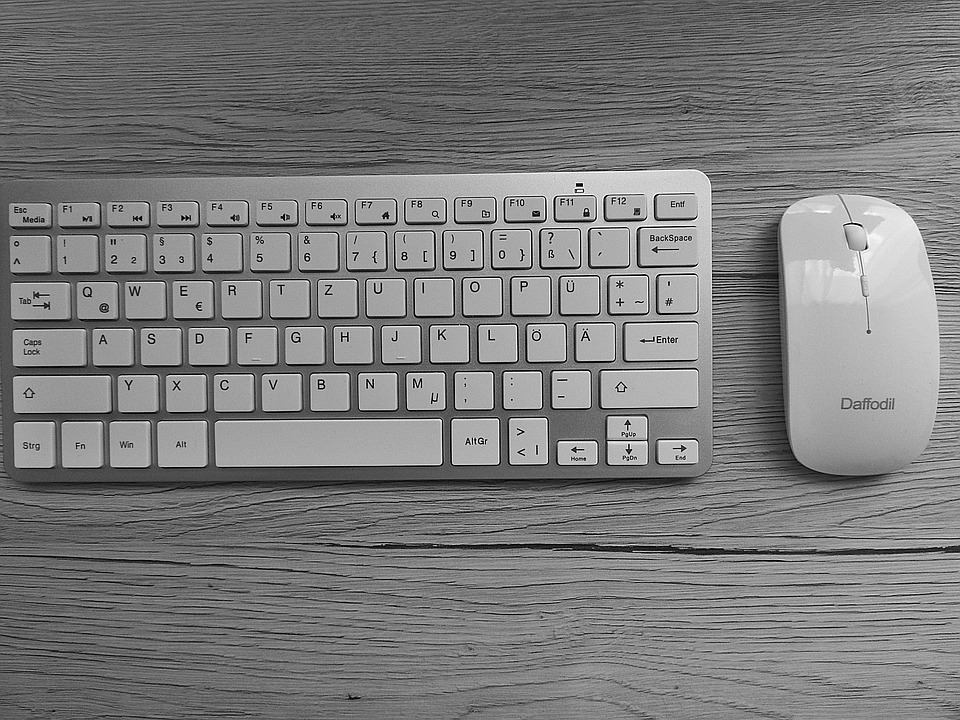Resiliency
Adapting to the Future of Work: How to Stay Relevant and Competitive

As the world of work continues to evolve at a rapid pace, it’s more important than ever for professionals to adapt to the changing landscape. With the rise of automation, artificial intelligence, and remote work, the traditional 9-to-5 job is becoming a thing of the past. But what does this mean for you, and how can you stay relevant and competitive in the future of work?
The Impact of Technology on the Workplace
Technology is revolutionizing the way we work, and it’s changing the skills and competencies required to succeed. Automation and artificial intelligence are taking over routine and repetitive tasks, freeing up humans to focus on more creative and strategic work. But this also means that many jobs are at risk of being replaced, and new ones are emerging that require different skills and expertise.
The Rise of the Gig Economy
The gig economy is on the rise, with more and more professionals choosing to work on a freelance or contract basis. This shift is driven by the desire for flexibility and autonomy, as well as the need for companies to adapt to changing market conditions. But what does this mean for traditional employees, and how can they stay relevant in a world where the concept of a “job” is changing?
Staying Relevant in a Changing Workforce
So, how can you stay relevant and competitive in the future of work? Here are some key strategies to consider:
Develop New Skills
The key to staying relevant is to develop new skills and competencies that are in demand. This might mean taking online courses, attending workshops or conferences, or pursuing a new degree or certification. The key is to stay curious and keep learning, as the pace of technological change is only accelerating.
Embrace Flexibility
Flexibility is key in the future of work. Whether it’s working remotely, freelancing, or taking on a side hustle, being able to adapt to changing circumstances is essential. This might mean being willing to pivot your career or business, or being open to new opportunities and challenges.
Focus on Soft Skills
While technology is taking over routine tasks, soft skills like communication, collaboration, and creativity are becoming more important than ever. These skills are essential for building strong relationships, solving complex problems, and driving innovation. By focusing on developing your soft skills, you can stay ahead of the curve and remain relevant in a rapidly changing world.
The Role of Emotional Intelligence
Emotional intelligence is becoming increasingly important in the future of work. As technology takes over routine tasks, humans are being asked to work more collaboratively and creatively. By developing your emotional intelligence, you can better understand and manage your own emotions, as well as those of your colleagues and clients. This can lead to stronger relationships, better communication, and greater success in your personal and professional life.
Conclusion
Adapting to the future of work requires a willingness to learn, adapt, and evolve. By developing new skills, embracing flexibility, and focusing on soft skills, you can stay relevant and competitive in a rapidly changing world. Remember to prioritize emotional intelligence, and don’t be afraid to take risks and try new things. The future of work is uncertain, but by staying curious and open-minded, you can thrive in whatever comes next.
FAQs
Q: What are the most in-demand skills in the future of work?
A: The most in-demand skills in the future of work include data analysis, digital marketing, cloud computing, artificial intelligence, and cybersecurity.
Q: How can I develop my emotional intelligence?
A: Developing emotional intelligence requires self-awareness, self-regulation, and empathy. You can develop your emotional intelligence by practicing mindfulness, taking courses or workshops, and seeking feedback from others.
Q: What are some strategies for staying flexible in the future of work?
A: Some strategies for staying flexible in the future of work include being open to new opportunities, being willing to pivot your career or business, and being adaptable to changing circumstances.
Q: How can I stay up-to-date with the latest trends and technologies in the future of work?
A: You can stay up-to-date with the latest trends and technologies in the future of work by attending conferences and workshops, taking online courses, and following industry leaders and experts on social media.
Q: What are some resources for learning more about the future of work?
A: Some resources for learning more about the future of work include books, articles, and online courses on topics such as automation, artificial intelligence, and the gig economy. You can also attend conferences and workshops, and follow industry leaders and experts on social media.
Resiliency
Navigating Project Setbacks Effectively

Project management is a complex and multifaceted field that involves planning, organizing, and controlling resources to achieve specific goals and objectives. One of the key challenges that project managers face is navigating setbacks, which can range from minor delays to major crises. Setbacks can occur due to various reasons, including unforeseen circumstances, poor planning, or inadequate resources.
Understanding the Nature of Setbacks
Setbacks are an inevitable part of any project, and project managers need to be prepared to handle them. Setbacks can be categorized into two types: internal and external. Internal setbacks occur due to factors within the project team, such as lack of skills or resources, while external setbacks occur due to factors outside the project team, such as changes in market conditions or unexpected events.
Identifying Potential Setbacks
Project managers can identify potential setbacks by conducting a thorough risk assessment at the beginning of the project. This involves identifying potential risks, assessing their likelihood and impact, and developing strategies to mitigate or avoid them. Project managers should also establish a system for monitoring and reporting progress, which can help to identify potential setbacks early on.
Developing a Contingency Plan
A contingency plan is a document that outlines the steps to be taken in the event of a setback. The plan should include a list of potential setbacks, their likelihood and impact, and the strategies to be used to mitigate or avoid them. The plan should also include a communication strategy, which outlines how stakeholders will be informed of setbacks and progress.
Implementing a Setback Recovery Plan
When a setback occurs, project managers need to implement a recovery plan to get the project back on track. This involves assessing the impact of the setback, identifying the root cause, and developing a plan to mitigate or avoid it. Project managers should also communicate the setback and the recovery plan to stakeholders, and provide regular updates on progress.
Communicating with Stakeholders
Communication is critical when navigating setbacks. Project managers need to communicate the setback and the recovery plan to stakeholders, including team members, sponsors, and customers. The communication should be transparent, honest, and timely, and should include information on the cause of the setback, the impact on the project, and the steps being taken to recover.
Building Resilience
Building resilience is critical for project managers to navigate setbacks. Resilience involves the ability to absorb and recover from setbacks, and to adapt to changing circumstances. Project managers can build resilience by developing a growth mindset, building a strong support network, and practicing self-care.
Learning from Setbacks
Setbacks can provide valuable learning opportunities for project managers. By analyzing the cause of the setback and the steps taken to recover, project managers can identify areas for improvement and develop strategies to avoid similar setbacks in the future.
Implementing Changes
Project managers should implement changes to the project plan and processes to avoid similar setbacks in the future. This may involve updating the risk management plan, revising the project schedule, or changing the project team.
Conclusion
Navigating setbacks is a critical aspect of project management. By understanding the nature of setbacks, identifying potential setbacks, developing a contingency plan, implementing a setback recovery plan, communicating with stakeholders, building resilience, and learning from setbacks, project managers can minimize the impact of setbacks and ensure that projects are delivered on time, within budget, and to the required quality standards.
FAQs
- What is a setback in project management?
A setback is an unexpected event or circumstance that can impact the progress of a project. - How can project managers identify potential setbacks?
Project managers can identify potential setbacks by conducting a thorough risk assessment at the beginning of the project. - What is a contingency plan?
A contingency plan is a document that outlines the steps to be taken in the event of a setback. - How can project managers communicate setbacks to stakeholders?
Project managers should communicate setbacks to stakeholders in a transparent, honest, and timely manner, and provide regular updates on progress. - How can project managers build resilience?
Project managers can build resilience by developing a growth mindset, building a strong support network, and practicing self-care.
Resiliency
How to Find Balance Between Work and Life (Without Burning Out)

Many of us struggle to balance our jobs with personal responsibilities. When that balance is off, it can lead to stress, burnout, and feeling overwhelmed. Over time, this affects not just our work performance, but our health and happiness too.
Let’s talk about why work-life balance is important, what challenges can get in the way, and how you can take small steps to improve it.
Why Work-Life Balance Is So Important
Work-life balance means giving time and energy to both your job and your personal life. When this balance is healthy, you feel more in control, less stressed, and more satisfied at work and at home.
It’s not about being perfect. It’s about making space for what matters—both professionally and personally.
The Benefits of Work-Life Balance
1. Less Stress and Burnout
When you have time for yourself, you’re less likely to feel overwhelmed or emotionally drained. You recover better and stay mentally strong.
2. More Focus and Productivity
When you’re not stretched too thin, you’re able to concentrate better during work hours and get more done in less time.
3. Higher Job Satisfaction
Balancing work and life helps you enjoy your job more and stay motivated, without feeling resentful or exhausted.
Common Challenges That Get in the Way
1. Blurred Lines Between Work and Home
Thanks to phones and laptops, work follows us everywhere. It’s hard to “turn off” when emails and messages keep coming after hours.
2. Long Work Hours
Overtime or shift work can eat into family time and leave little room for rest or fun.
3. Lack of Support
When employers or loved ones don’t understand your need for balance, it becomes harder to set limits or ask for help.
5 Simple Tips to Improve Your Work-Life Balance
1. Set Boundaries
Decide when your workday starts and ends—and stick to it. Don’t check emails or take calls outside of those hours.
2. Make Time for You
Even 15–30 minutes a day of self-care—like walking, reading, or meditating—can make a big difference.
3. Say No When You Need To
Protect your time. You don’t have to say yes to everything, especially if it takes away from your personal priorities.
4. Talk to Your Manager
If your workload is too heavy or unclear, have a respectful conversation about your needs. You might be surprised how open they are to finding a solution.
5. Take Real Breaks
Step away from your screen during the day. A short break helps clear your mind and boosts your energy.
Final Thoughts
Work-life balance isn’t just a nice-to-have—it’s a must. Taking care of yourself helps you show up better in every area of life. You don’t need to overhaul everything overnight. Start with one small change, and build from there.
Remember: balance looks different for everyone. Find what works best for you and protect it like your peace depends on it—because it does.
FAQs
Q: How do I know if I need better work-life balance?
A: If you’re always tired, stressed, or feel like you never have time for yourself, it’s a sign that something needs to shift.
Q: I work from home—how can I create balance?
A: Try setting regular work hours, having a dedicated workspace, and taking short breaks throughout the day. Also, shut down your work devices after hours.
Q: How do I talk to my boss about this?
A: Be honest and respectful. Explain your concerns, share what you need, and suggest solutions that benefit both you and the team.
Resiliency
The Power of Flexibility: How Adapting to Change Can Enhance Your Career and Job Satisfaction

In today’s fast-paced and ever-changing work environment, adapting to change is essential for career growth and job satisfaction. The ability to be flexible and adaptable can make a significant difference in one’s career, helping them to navigate the ups and downs of the job market and achieve their professional goals. In this article, we’ll explore the power of flexibility and how it can enhance your career and job satisfaction.
The Importance of Adapting to Change
Change is inevitable in any organization, and it’s crucial to be prepared to adapt to new situations, processes, and technologies. When you’re able to adapt quickly and effectively, you’ll be better equipped to handle the challenges that come with change, and you’ll be more likely to thrive in a rapidly changing work environment.
Benefits of Flexibility in the Workplace
Increased Job Security
When you’re able to adapt to change, you’re more likely to be seen as a valuable asset to your organization. This can lead to increased job security, as your employer will be more likely to keep you on board due to your ability to adapt to new situations and challenges.
Improved Communication
Flexibility in the workplace also improves communication and collaboration. When team members are able to adapt to new situations, they’re more likely to be able to communicate effectively and work together to achieve common goals.
Enhanced Creativity
Adaptability can also lead to enhanced creativity and problem-solving skills. When faced with new challenges, flexible employees are more likely to think outside the box and come up with innovative solutions.
How to Develop Flexibility in the Workplace
Open-Mindedness
One of the key traits of a flexible employee is an open mind. When you’re open to new ideas and perspectives, you’re more likely to be able to adapt to change and new situations.
Effective Communication
Effective communication is also essential for flexibility in the workplace. When you’re able to clearly communicate with your team and colleagues, you’ll be better equipped to adapt to new situations and challenges.
Embracing Uncertainty
Finally, embracing uncertainty is key to flexibility in the workplace. When you’re able to accept that change is inevitable and that uncertainty is a natural part of the process, you’ll be better equipped to adapt to new situations and challenges.
Conclusion
In conclusion, flexibility is a vital trait for success in today’s fast-paced and ever-changing work environment. By being open-minded, effective in communication, and embracing uncertainty, you’ll be better equipped to adapt to change and achieve your career goals. Remember, the power of flexibility can lead to increased job security, improved communication, and enhanced creativity. By embracing flexibility, you’ll be better equipped to navigate the ups and downs of the job market and achieve the job satisfaction you deserve.
FAQs
Q: What are some common challenges that can make it difficult to adapt to change?
A: Some common challenges that can make it difficult to adapt to change include resistance to change, lack of clear communication, and inadequate training or support.
Q: What are some strategies for overcoming these challenges?
A: Some strategies for overcoming these challenges include seeking out additional training or support, communicating openly with colleagues and management, and focusing on the benefits of change, rather than the difficulties.
Q: How can I demonstrate my flexibility to my employer?
A: Demonstrating your flexibility to your employer can be as simple as being open to new ideas and perspectives, being willing to take on new responsibilities, and showing a willingness to learn and adapt to new situations and challenges.
Q: What are some common myths about flexibility in the workplace?
A: Some common myths about flexibility in the workplace include the idea that being flexible means being able to work long hours or be available 24/7, or that being flexible means sacrificing personal time or priorities. In reality, flexibility is about being able to adapt to new situations and challenges, while still maintaining a healthy work-life balance.
Q: How can I prioritize my own flexibility and self-care in the workplace?
A: Prioritizing your own flexibility and self-care in the workplace can be achieved by setting clear boundaries, taking regular breaks, and practicing stress-reducing techniques, such as meditation or deep breathing exercises.
-

 Career Advice4 months ago
Career Advice4 months agoInterview with Dr. Kristy K. Taylor, WORxK Global News Magazine Founder
-

 Diversity and Inclusion (DEIA)4 months ago
Diversity and Inclusion (DEIA)4 months agoSarah Herrlinger Talks AirPods Pro Hearing Aid
-

 Career Advice4 months ago
Career Advice4 months agoNetWork Your Way to Success: Top Tips for Maximizing Your Professional Network
-

 Changemaker Interviews3 months ago
Changemaker Interviews3 months agoUnlocking Human Potential: Kim Groshek’s Journey to Transforming Leadership and Stress Resilience
-

 Diversity and Inclusion (DEIA)4 months ago
Diversity and Inclusion (DEIA)4 months agoThe Power of Belonging: Why Feeling Accepted Matters in the Workplace
-

 Global Trends and Politics4 months ago
Global Trends and Politics4 months agoHealth-care stocks fall after Warren PBM bill, Brian Thompson shooting
-

 Global Trends and Politics4 months ago
Global Trends and Politics4 months agoUnionization Goes Mainstream: How the Changing Workforce is Driving Demand for Collective Bargaining
-

 Training and Development4 months ago
Training and Development4 months agoLevel Up: How Upskilling Can Help You Stay Ahead of the Curve in a Rapidly Changing Industry








